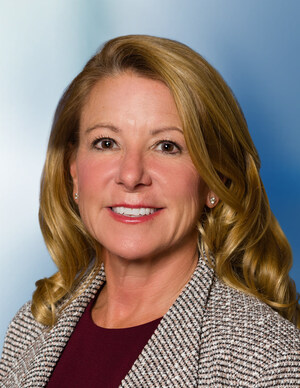BMO Retirement Institute Report: How Men and Women Can Learn From One Another When Planning for Retirement
- Men are more likely than women to have investments or to be enrolled in their company's retirement plan(1)
- Men are three times as likely as women to describe their investment style as "aggressive"(2)
- When it comes to retirement planning, men are more likely than women to say "I can do this by myself"(3)
- Women are more likely to enjoy retirement and feel more excited and enthusiastic about their retirement journey(4)
CHICAGO, March 28, 2012 /PRNewswire/ -- Today the BMO Retirement Institute issued a report, Complementary Paths to Retirement: How men and women can learn from one another that finds that, when it comes to retirement, gender strongly influences the path men and women take to plan for that important life stage.
The report explores the different approaches men and women take to retirement, identifies additional challenges women must address, and suggests ways in which they can learn from each other.
"Despite the challenges that women face, we are seeing that they are actually more likely than men to enjoy their retirement," said Tina Di Vito, Head, BMO Retirement Institute. "Men and women have noticeable differences in how they respond to both financial and non-financial changes brought on by retirement, and women are proving that they have adapted the necessary skill set to help them cope with this transition."
Women Face Unique Challenges
The report notes that, for many women, retirement is often lived alone, whether by choice, or as the result of divorce or the death of a spouse.
Women must address unique challenges when planning for retirement such as longer life spans than men, and more intermittent work histories (women are more likely to interrupt their employment to act as family caregiver). These factors may result in lower earnings which, in turn, equate to lower pension benefits or 401(k) balances. Widowhood or divorce can also reduce women's retirement income. Moreover, women are statistically less likely than men to find a new partner if they find themselves alone in retirement.
What the Genders Can Teach Each Other
The behavioral differences exhibited by women and men can have a critical impact on their retirement planning. However, by capitalizing on each other's positive behaviors, which are very complementary, both sexes can better position themselves to have a more successful and fulfilling retirement.
The report found that women, in general, are less confident in their knowledge of finances and financial product/services than men. They also tend to be more risk averse than men, trade less frequently, hold less volatile portfolios and expect lower returns than men do.
Men's willingness to assume a reasonable level of risk allows them to achieve relatively higher growth in their retirement savings. Women could benefit from employing some of these behaviours in their retirement planning efforts.
According to the report, men have a tendency to "go it alone" when formulating plans. Women are more likely than men (43 percent vs. 34 percent) to say they need help, which could help them avoid costly mistakes.
Additionally, men's identities have historically been closely tied to their work. If they have not replaced work with something that gives them a sense of purpose during retirement, it can have negative outcomes. Women, on the other hand, are more closely tied to the relationships they have built nurturing their families and that provides them a sense of purpose that will see them through their retirement.
Ms Di Vito concluded, "There are clear differences between men and women when it comes to retirement planning. However, by integrating the best attributes from one another, both genders can increase their prospects for a more successful retirement."
To view a copy of the full report or for more information about the BMO Retirement Institute please visit: www.harrisbank.com/retirementinstitute
About the BMO Retirement Institute
The BMO Retirement Institute, a part of BMO Financial Group, was established in 2008 in Canada to provide thought-provoking insight and financial strategies for individuals planning for, or currently in, their retirement years.
About BMO Financial Group
Established in 1817 as Bank of Montreal, BMO Financial Group is a highly-diversified North American financial services organization. With total assets of $477 billion as at October 31, 2011, and more than 47,000 employees, BMO Financial Group provides a broad range of retail banking, wealth management and investment banking products and solutions. BMO Harris Bank(sm) is a trade name used by BMO Harris Bank N.A. Member FDIC.
BMO and BMO Financial Group are trade names used by Bank of Montreal.
1,2, 3, 4 BMO Retirement Institute Survey, conducted by Harris Decima, January 2012
SOURCE BMO Financial Group
WANT YOUR COMPANY'S NEWS FEATURED ON PRNEWSWIRE.COM?
Newsrooms &
Influencers
Digital Media
Outlets
Journalists
Opted In




Share this article